
views
Considering Your Lifestyle

Evaluate how busy you are. If you aren't home very often and are often busy with work, a cat might be a better option for you. Most cats don't depend on you that much for companionship and are fine with alone time. Plus, they use a litter box, which means you don't have to worry about them messing up the house when you aren't at home. Dogs require more time. Dogs need 30 to 60 minutes of exercise daily. If not, they will learn bad habits such as excessive barking, destructive tendencies, hyperactivity, scratching, or biting. They also need to be taken out a few times a day. This doesn't mean that you should get a cat if you are at home only to sleep. This would be cruel for your cat, who will need some interaction and care from you, such as fresh water daily and nail and fur care. They are just more low maintenance on a daily basis than dogs.
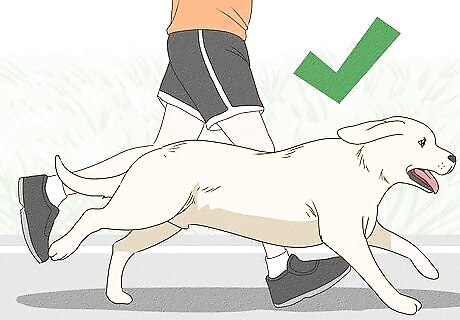
Think about your free time. If you have a lot of free time and want to spend it with an animal, a dog is a better option. In fact, most dogs crave attention and don't like being left alone for too long. If you want a pet that you can go outside and run with, go swimming with, or just one that is more adventurous, get a dog. If you prefer a more sedentary lifestyle, think about a small lap dog who is less prone to excessive exercise. This kind of lifestyle is also good for a cat. If you travel from home a lot, you will need to arrange for pet care. If you leave your dog at home, she will need a pet watcher to come to your home at least twice a day to let her out and feed her. However, a cat can go for a day or two without being checked on as long as he has enough food and water available to him.

Look at your finances. Dogs and cats are not cheap. Both pets need basic things, such as food, water, and consistent veterinary care. Cats need litter, a litter box, scratching posts, and toys to remain happy, healthy pets. Dogs need more food, toys, and carriers for traveling. It is generally easier to take a cat with you or find a cat sitter, but often dogs have to be kenneled, which is an extra expense. Some cats, especially those with long or thick fur, will need regular grooming or a daily brushing. You may pay to have this done, or you may have to take time to do it yourself. The average cat costs $1035 the first year to own. For dogs, a small dog averages $1314 in the first year and a large dog averages $1843. This includes daily care as well as vaccinations and neuter or spaying. This doesn't take into account any emergency care.
Looking at Your Living Arrangements

Consider the size of your home. Where you live can also impact which animal you have. Cats do fine in most environments, whether you live in a small house or a mansion with a huge yard. Dogs, depending on how large they are, require more space. It also helps to have a yard if you have a dog, which means you can just let her out to play and do her business in the back yard sometimes. If you live in an apartment, think about a small dog or a cat. In these cases, many landlords will demand an extra deposit to cover any potential damage done to their property by your pet.
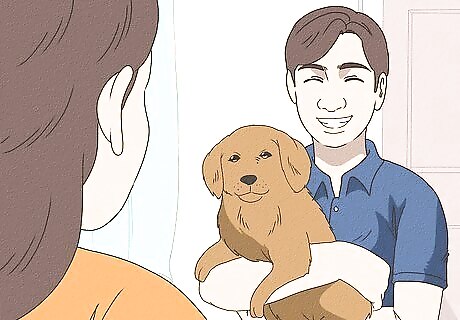
Think about those who live with you. When deciding if you want a pet, you have to think about the people who live with you. If the people are your family or your significant other, the decision to have a pet will likely be one you make together. You have to figure out everyone's preferences and what they feel about the different kinds of cats and dogs. If you live with a roommate, you will need to take into consideration their needs and desires about getting a pet. Can they handle a rambunctious puppy, a roaming cat, or a large dog in your home? You have to consider their quality of life when deciding to get a pet. You also need to establish whether the people in your house are willing to help take care of the animal while you are away at work, school, or traveling.
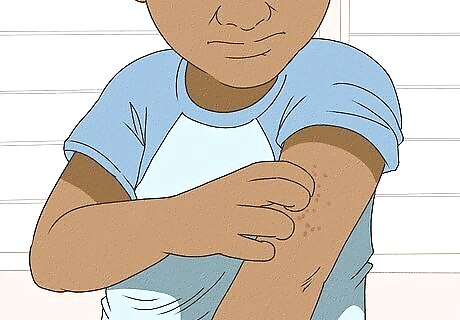
Look for allergies. Before you get a pet, you have to check to see if your family members or roommates have cat or dog allergies. You don't want a roommate or family member to be miserable or to get attached to a pet you can't keep. To check before getting a pet, visit friends or family that have cats and dogs separately, so you can decide which one a person might be allergic to. If you don't have friends with pets, visit the humane society to play with their animals. Nothing is more heartbreaking than having to give up a loved pet because someone in the family has allergies, so always be sure before adopting or buying a pet.
Picking the Kind of Pet

Research different breeds. Before you can get a pet, you need to find the right breed of animal for you. Think about the kinds of breeds you think you'd like and then research them. You can do this online, through your vet, or by talking to knowledgeable people. This applies to both species. Some cats need more attention than others. Some dogs are more vocal than others. Some breeds tend to have worse tempers than others. All these details are important if you want to find a pet that will suit you. If you aren't sure, try the American Kennel Club's online dog breed selector program or the American Humane Society's online checklist on cat breed selection.
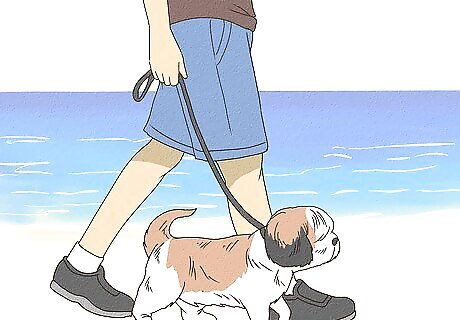
Check the temperament. The kind of animal you want may depend on their temperament or physical capabilities. You might want a rambunctious puppy that will turn into a big dog in need of a lot of exercise, especially if you are a very active person. If you are more a walk in the park kind of person, consider a small dog breed that enjoys slower activity. Cat's can be very temperamental. If you want a pet to hold, pet, and snuggle with all the time whenever you want, you may need to get a small dog. If you want an animal that will snuggle with you and love on you when he wants but not all the time, a cat might work better for you.

Get a pet. Once you have examined all the factors and know you can handle a pet, live in the right place for a pet, and know which kind you want, you need to choose a pet. Spend time searching for the perfect pet for you. Search the internet or classified sections to find pets for sell. This is a good method if you want a particular purebred animal. Also visit your local humane or rescue society to consider adopting a fine, healthy pet. If you find one you like, contact the owner or shelter people to let them know you’re interested in the animal. Then, return to the place every day for a few days to spend time with the animal. This will help you both adapt before you take her home. Some shelters and owners will let you take the animal as a foster pet for a while until you become familiar with what she is like and decide you want to keep her.
Deciding if You Should Get a Cat
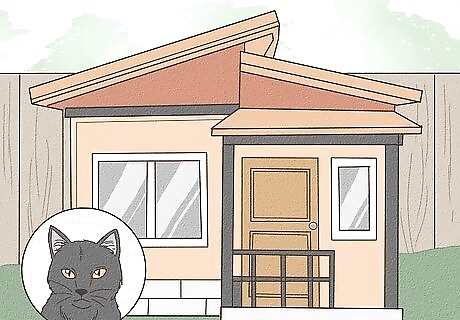
Get a cat if you live in an apartment or a small house. While cats can suit large homes, and some dogs might suit small homes, the general rule of thumb is that cats do better in small homes than dogs do. This is because cats tend to be less active and energetic than dogs.

Get a cat if you have a busy schedule. Dogs tend to be very affectionate and wanting to spend as much time as possible with their owners. On the other hand, cats tend to be more independent. This makes cats more suitable for a busy schedule. If you have a flexible schedule that can be busy or laidback, choose a cat. This is because some days might be busy, and cats tend to be more suitable for busy schedules.
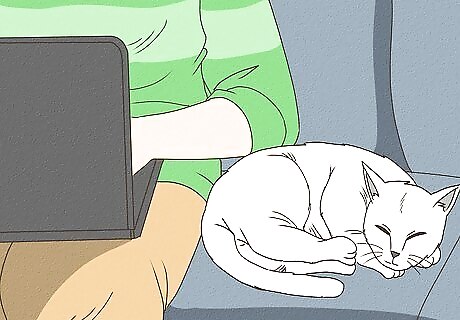
Get a cat if you don't want a lot of cuddles and affection. Sometimes it can be annoying when pets are always following you around and wanting some love. Cats, while some might be a little more affectionate than others, tend to be independent and not much in need of cuddles. This can depend a lot on the individual cat. While some cats might be very independent, others might be incredibly affectionate.

Get a cat if you have a hard time deciding on a breed. While cats come in many breeds aswell, they come in many less breeds than dogs do, and they tend to have less variation between breeds than dogs.
Deciding if You Should Get a Dog
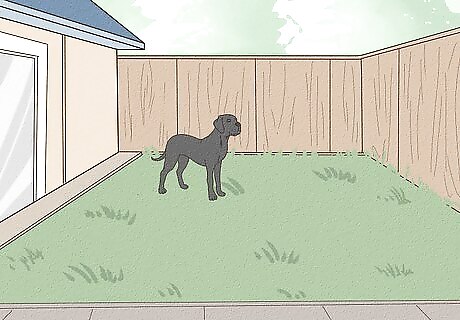
Get a dog if you live in a large house with a backyard. While some dogs can suit small homes, generally, dogs require more space than cats. Dogs tend to be a lot more active than cats.

Get a dog if you have a laidback schedule. Dogs almost always want loads of attention from their owner, so they might not suit busy schedules.

Get a dog if you love cuddles and affection. Dogs are highly affectionate pets that love to spend time with their owners. Dogs are known for being loyal pets that constantly crave attention. Although, despite this, some dogs tend to be more independent than others.

Get a dog if you want a wider variety of breeds to choose from. Dogs have been domesticated longer than cats have been, so as a result, there are more dog breeds than cat breeds, and dogs vary a lot more from breed to breed. Different dog breeds can come in different sizes, shapes, colours, and patterns.



















Comments
0 comment